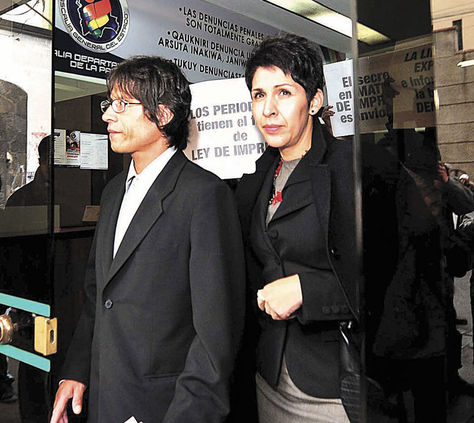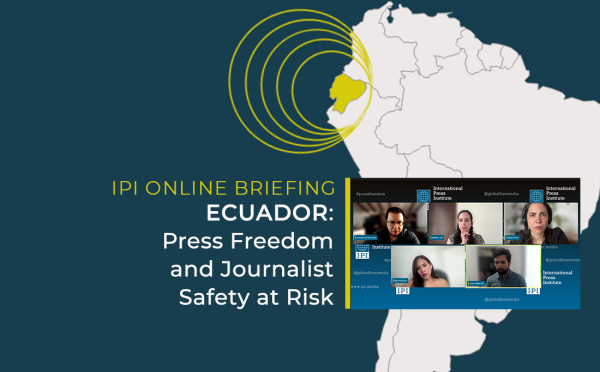A Bolivian judge earlier this month ordered a journalist and editor in chief* to reveal the sources behind a recent investigative article, despite provisions guaranteeing source confidentiality in the country’s press law.
“A source has never been revealed in this country,” said Juan León Cornejo, president of the National Press Association (ANP). “We would not know what to do if this were to happen. This ruling does not have the intent of finding out the sources but rather scare and threatened the press.”
On May 7, journalist Ricardo Aguilar and editor in chief* of daily La Razón, Claudia Benavente, were called to testify at a criminal court in the capital of La Paz. There, they were notified of an order handed down against them on April 25 instructing them to reveal, within three days, the sources used for a piece written by Aguilar and published in La Razón on April 13. In addition, Judge Jhonny Machicado instructed them not to give any statements regarding their case until further notice.
The article in question, “How the maritime lawsuit won out over the idea of unilateral action,” detailed the ongoing dispute between the Bolivian and Chilean governments regarding Bolivia’s access to the Pacific Ocean.
According to Cornejo, the judge did not stipulate the basis of his ruling nor specify the laws violated by Aguilar and Benavente when publishing this particular article.
“Judicial harassment is taking place against the daily La Razón and it represents a clear attack against independent journalism in Bolivia,” Cornejo told IPI in a phone interview last week.
La Razón said in a statement released this month that the article in question did not violate any laws and that the publication would pursue its right to appeal the judge’s ruling under Article 8 of the press law (Ley de Imprenta), which says that “secrecy regarding published (articles) cannot be violated”.
Government authorities have also weighed in on the case. Bolivia’s vice president, Álvaro García Linera, has insisted that the purpose of the complaint filed by the prosecutor’s office was not to sanction the publication but rather find out the source used by Aguilar, Bolivian daily El Deber reported on May 11.
“At this time, the case remains at limbo,” Cornejo explained. In addition, he said that even though Aguilar and Benavente were given three days to turn over their sources, nothing has taken place since the ruling was handed down on May 7.
The International Press Institute (IPI) is extremely concerned by the actions taken by judicial officials in Bolivia, who are clearly going against the right of journalists to protect their sources, as stated in the country’s 1925 press law.
“We remind Bolivian authorities that a journalist’s right to protect his or her sources has been recognised by a number of international institutions, such as the European Court of Human Rights, the Inter-American Commission on Human Rights, and the OSCE, just to name a few,” said Vanessa I. Garnica, IPI press freedom adviser for Latin America and the Caribbean. “A journalist’s right to protect a source is critical to press freedom. Without such guarantees, sources may be deterred from providing reporters with information that may be of public interest.”
*Article was updated on Aug. 20 to reflect Benavente’s position within the publication.



